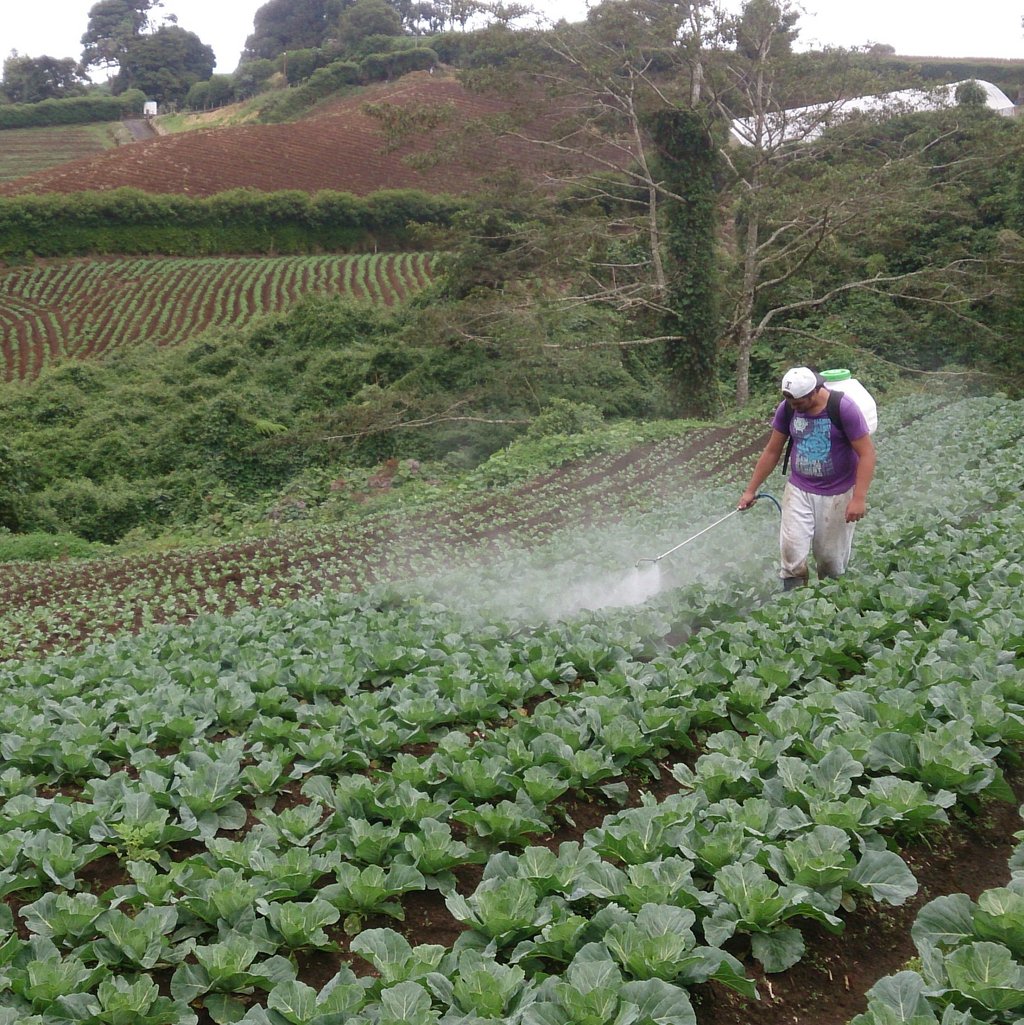Pesticide use in tropical settings
What do we see on the project photo?
The picture shows how farm workers apply pesticides on a vegetable farm in Costa Rica. The spray drift is clearly visible, distributing the pesticides in the surroundings. Without protection, the workers’ skin and airways are directly exposed to the chemicals.
How would you explain to a child what the project is doing?
We investigate in two tropical regions in Central America and Africa how farmers on small farms use pesticides. We study their health and measure pesticides in rivers and drinking water. Additionally, we study how the governments regulate the use of pesticide by farmers.
What is the project’s main objective?
The project aims at understanding why applicators do not protect themselves sufficiently. We investigate what the negative impacts can be for human health, rivers and drinking water. We derive recommendations on how to improve on the situation.
Why is the project important?
Smallholder farmers in low and middle income countries rely on synthetic pesticides to protect their crops. However, their agronomic knowledge is often limited, resulting in unintended and unsafe use of pesticides. Our research helps improving the current situation.
What has been the most positive moment during the project?
In Uganda, we tried new forms of involving local farmers and stakeholders from different sectors in the design of novel solutions. It was exciting to experience that the participants actively engaged in novel formats and were very creative.
What have been the biggest challenges encountered in the project?
The local populations get enthusiastic about our project. With every finding presented, we raise expectations for subsequent action and improvements. To keep the momentum and turn scientific benefit into something tangible for stakeholders is not easy and not only depends on us as researchers.
Which is the most important lesson learnt from the project?
Fostering safe pesticide use is like a jigsaw puzzle: every piece helps to clear up the situation but all pieces are needed for a satisfying ending - proper legislation, adequate infrastructure along the food value chain, education of farmers and consumers who ask for healthy products.
About the project
Title:
PESTROP (Pesticide use in tropical settings)
Contact:
Christian Stamm, Dep. Head of Department, Environmental Chemistry, Eawag
Duration:
2015 - 2020
Funding institutions:
Swiss Network for International Studies SNIS, Eawag
Implementing institutions:
Eawag, Swiss Tropical and Public Health Institute, University of Bern, Universidad Nacional, Heredia (Costa Rica), National Association of Community and Occupational Health UNACOH (Uganda)
Further information:
https://www.eawag.ch/en/department/uchem/projects/pestrop-pesticide-use-in-tropical-settings/

